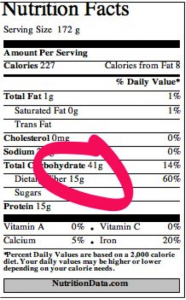A diagnosis of both type 1 diabetes and celiac disease comes with questions and adjustment. Keep in mind the following advice from the CDF Medical Advisory Board for managing this dual diagnosis:
Give yourself time and find a great team
- Find a great physician and dietitian to help you in this journey. YOU are the patient and you are in charge of your health. If you don’t feel like your current team is listening to your needs, find a new one. It’s a great idea to interview providers and come to the first visit with questions that are important to you. Search the CDF Healthcare Practitioner Directory for those with specialties in your area.
- Know that both conditions take time to adjust (often years!) and can change over time. Symptoms that you had initially might go away and new ones pop up; complications or related disorders may arise.
- Mental health is an often over-looked and under-appreciated part of managing chronic illness. Talking with a therapist or support group can be the missing piece you need for taking charfe of your health in face of these huge life changes.
- Get a note from your doctor to bring in your own food at places like airports, amusement parks, and sporting events
- Invite spouses, parents, caregivers, grandparents, siblings, etc. to your healthcare appointments so they can better understand and participate in the care you need
Tips for managing blood sugar
- It is common for those with type 1 diabetes to have difficulty initially with elevated blood sugars when moving to a gluten-free diet. Consult your endocrinologist to determine if your insulin needs have changed after a celiac diagnosis.
- Undiagnosed celiac disease may lead to poor glycemic control, usually hypoglycemia, because carbohydrate is not being fully absorbed by the damaged intestines. After a celiac diagnosis, as the intestines heal with the gluten-free diet, you may need to give more insulin to manage high blood sugar because carbohydrate is now being fully absorbed.
- Learn which gluten-free carbs work well for you… every body is different and may react sensitively to some foods but not others.
- Prevent spikes in blood sugar by choosing gluten-free carb sources that are rich in fiber (you may need to subtract the grams of fiber from total carbs if your endocrinologist or dietitian recommends) and pair with a source of protein or fat to slow the release into your bloodstream.
- Ex: Mary’s Gone Crackers with cheese slices
- Ex: Gluten-free oatmeal with nuts
- Maximize your nutrition using gluten-free whole grains and beans as your source of carbohydrate rather than processed or packaged gluten-free foods. Read more about maximizing health on the gluten-free diet.
Read labels & recipes for carb counts
Don’t use standard diabetic exchanges for estimating carbohydrates when transitioning to a gluten-free diet because:
- Portions of GF packaged foods are usually smaller than conventional products
- Ex: store-bought blueberry muffin: 62 g carb
- gluten-free blueberry muffin: 40 g carb
- Many GF processed foods are higher in carbohydrate than conventional products due to added sugars, simple starches, and low fiber to mimic texture of gluten
- Other GF products are much lower in carbohydrate than conventional versions
- Ex: cauliflower mashed potatoes, almond flour baked goods
Always keep gluten-free carbs with you, just in case…
- You eat a consistent carbohydrate diet
- It may be easier not to eat grains when dining out if they don’t have gluten-free options, but then you may be in danger of not getting enough carbohydrate
- Bring your own roll, tortilla chips, etc. Many restaurants are understanding if you explain your strict diet needs
- Use beverages as a source of carb if all else fails. Milk and real juice are naturally gluten-free.
- Keep back-up granola bars, crackers, dried soybeans, or nuts in your car, backpack or purse
- You run into low blood sugar
- Glucose tablets, hard candies, fruit, juice or soda are all naturally gluten-free (but be more cautious of chewy candies that may contain wheat, and always check labels)
5-day Consistent Carbohydrate Gluten-Free Meal Plan
Download and print the meal plan that fits your needs. Please always consult with your physician and/or registered dietitian for medical advice about meeting your own individualized needs. If you need help finding one, search the CDF Healthcare Practitioner Directory.
- 45 g carb meals, <5 g snacks, total 1600 calories/day
- 60 g carb meals, 30 g snacks, total 2000 calories/day